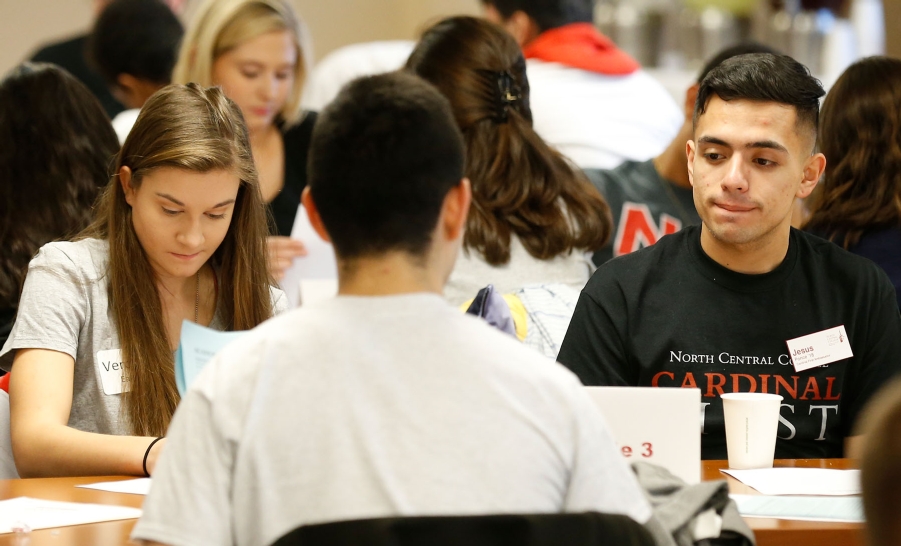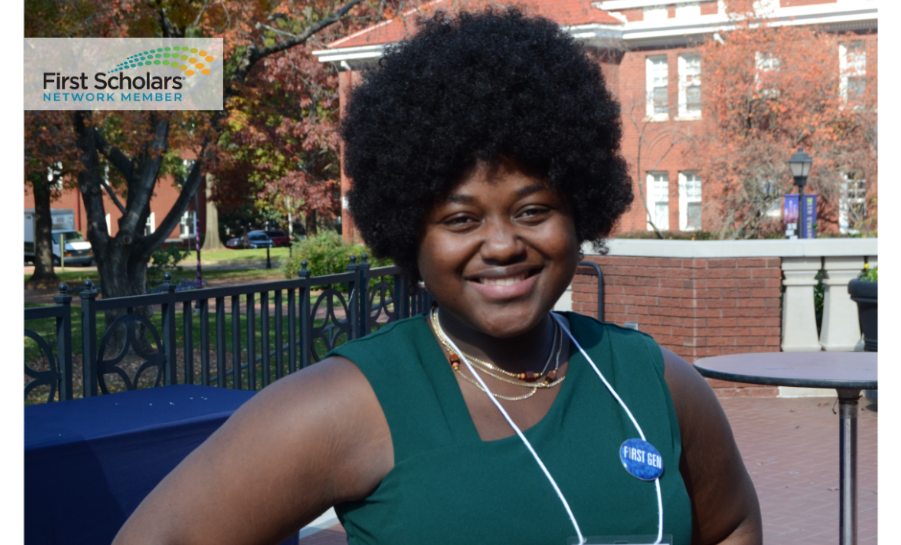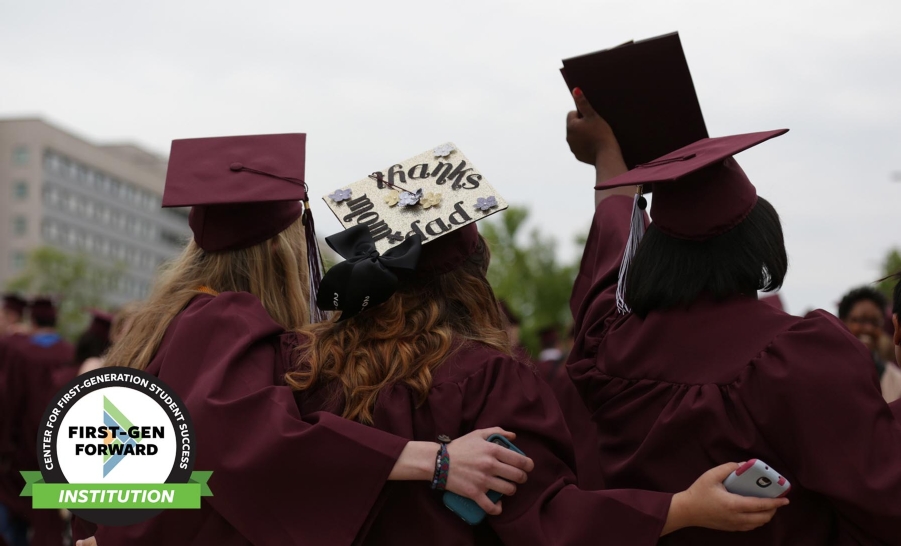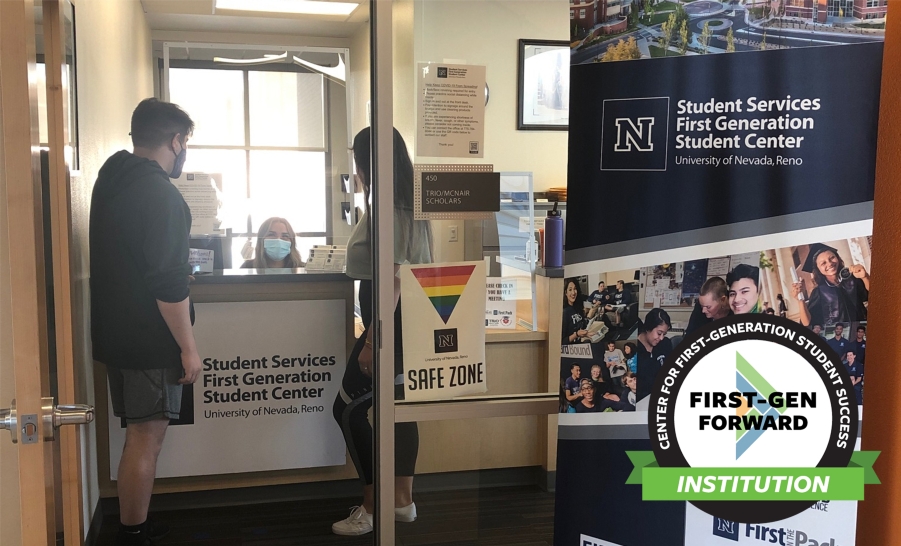Building a First-generation Community: First Scholars at the University of Memphis
Jaclyn P. Rodriguez M.P.S., University of Memphis First Scholars / FirstGen Forward / February 22, 2018
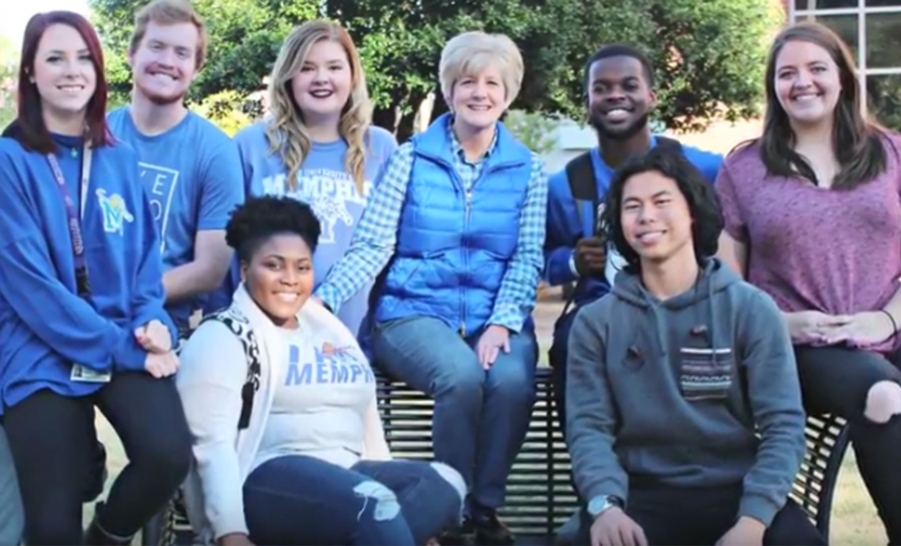
When I first came to the University of Memphis in 1999, I was also a first-generation student. I dealt with an array of emotions, which I now identify among current first-generation students in my role as the First Scholars Program Coordinator. I felt lost, overwhelmed, a little out of place, and unprepared when I heard the conversations of other students who seemed more likely to succeed than me. Now, there are plenty of theories that support what I was experiencing. In truth, these feelings are not singular to first-generation students. However, they can be magnified for this population, as there are often insufficient supports guiding them through these early emotions and showing them how to navigate the university network. At my university, approximately 40 percent of student population is first-generation. There are several programs in place to assist our students including First Scholars, a signature initiative of The Suder Foundation. In this blog, I want to focus on the first few weeks of college because they are critical and truly do make a difference in forming positive communications and interactions with our students.
Building a community and support structure is always the first task that I set for my staff and our peer mentors. Sometimes it can be hard to admit when we need help or have questions, so I always try to avoid this obstacle by making sure my incoming First Scholars know how to reach me by cell, e-mail, office, or snail mail if necessary. I maintain open lines of communication; this method of openness is important because without trust, there is no relationship. Consequently without a relationship or immediate support, we lose the opportunity to create a bond, which functions as a core component of student success and engagement. I introduce them not only to the important how-tos, but also to the fun university traditions so they do not solely identify as a First Scholar, but also as a true Tiger. This is how I begin to sow the seeds of engagement, pride, and collegiate confidence.
Before day one, we meet with our First Scholars in welcome ceremonies, parent meetings, and summer retreats. We strive to give them the leg-up so they never feel the way I did on that first day. In the summer, we do a literal practice run on campus with their class schedules in hand so they know how get to get to their classes. Additionally, we provide them with a sample syllabus so they know what to expect on the first day. My staff and I hold workshops on how to navigate our online programs and resources. Furthermore, we hold panels with upperclassmen to give freshmen the opportunity to connect with other students and ask questions they might not ask a staff member. I also try to think of the simple things that we, as staff, take for granted everyday. University acronyms and resources are standard to us, but they are a foreign language for university newcomers. Therefore, we created a library of resources that includes university vocabulary, financial literacy tips, maps, insider tips on university traditions and histories, and suggestions from students who have lived both on and off campus.
Our First Scholars are not outsiders when they come on campus. We help them become the authority on the University of Memphis and leave them empowered to share knowledge with other first-generation students. Through our “Tigers First” program, we work tirelessly to build confidence through one-on-one meetings with staff and mentors, phone conversations and texts, group chats, and e-mails. This promotes student engagement, helps students push themselves to succeed, and encourages students to give back. I should note that we never rely on one method of communication; rather, we use all modes to ensure that every student is receiving our communications. What communications keep students engaged? I started to use images of our students for every post, e-mail, text, etc. and found that they responded at much higher rate. Now, when we survey our students, we can expect to receive a 90 to 100 percent response rate within our program. This is attributed to our success in engaging our students and keeping them active with our staff through weekly communications.
Finally, I set reminders to check on my students before, during, and after exams. I have a copy of their classes and syllabi, which allows me to know who may need extra attention. We take a proactive approach to get ahead of obstacles in lieu of running into them reactively. First Scholars is about helping our students understand themselves and their strengths in addition to showing them they have the necessary tools to succeed. We incorporate “success with significance” by giving back and paying it forward in some capacity. Our role as first-generation advocates is to acknowledge that each student has his or her own story. It is essential to recognize each story as a page turner and to never put that student book down. For, we want to make sure it has a great ending.
